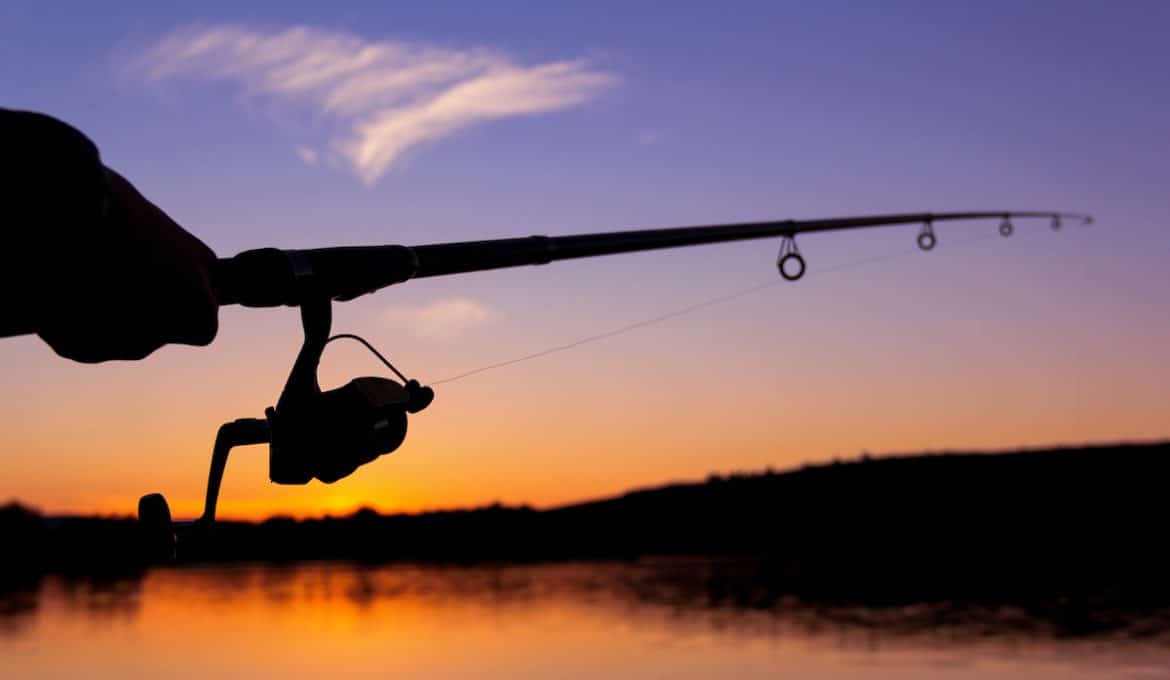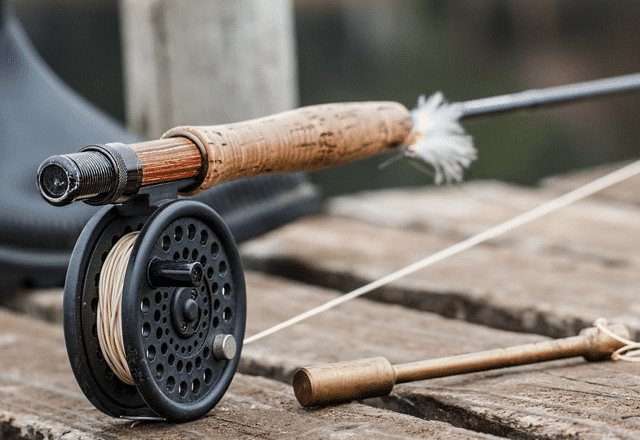Fishing at night comes with many upsides. They include the fact that it’s cooler, you can use different lures, catch a diverse variety of fish, and tackle a unique challenge you don’t experience during the day.
While it may seem like a fun way to change things up, there are some factors you want to keep in mind if you are firing up the motor (or paddles) when the moon is out. Night fishing requires a whole different approach.
Tips For Fishing At Night

Fishing at night is a whole different animal, and it requires a unique strategy for success. The following are some of the best ways to ensure you have a successful night outing.
Keep The Bait Moving
At night, fish use sonar senses to get around because there is no light. This means that every small movement is quickly detected by the fish so spinnerbaits are your best friend. The lure you use is less important than consistently jigging and moving the bait around.
Larger predator fish do not see well in the dark, and their sonar senses are much weaker than smaller panfish. This is a significant advantage of nighttime fishing because it allows fish like bluegill, sunfish, crappies, and perch to come looking for food.
Use Light To Your Advantage
You want to keep your usage of night fishing lights to a minimum because it will attract a ton of bugs, but you can use those lanterns to help catch more fish.
If you shine a light on the top of the water, you’ll notice phototrophs rushing to the top. Once they come around, small minnows come after the phototrophs to eat, and I don’t think I have to tell you what happens next.
This is a great way to hack the system a little bit and play around with your luck. If there’s a spotlight or anything like that at the lake you’re fishing, you could try that area as well. Moonlight actually works well, too.
Use A Sensitive Line And Rod
At night, it’s obviously harder to see, so why not increase your chances of reacting faster? Using the most sensitive line and rod possible helps you respond faster to a small nibble you may not have otherwise noticed in the dark. You won’t be able to see your line either so that adds another level of difficulty. An ultrasensitive line will help make up for your lack of sight.
Go Towards Murky Water
Mapping out your travel path is a good idea when fishing at night. When you create that map make sure you include some murky, muddy areas because that is where fish love to hang out.
Take your jigs and spinners to that area and keep them moving around the murky water, you are bound to catch something. Throwing a spinner along a rocky shore is also a great spot to try.
Night Fishing Safety And More

Fishing in the dark can be a thoroughly rewarding experience. That said, it does require some extra safety precautions. Here’s a look at some things that can help you and keep you safe while you’re out there.
Scope It Out Ahead Of Time And Get There Early
If possible, you want to get to your fishing spot while the sun’s shining to check everything out. This is even more applicable if you’ve never fished that particular spot before.
Try to put together a map of the area before you go fishing. If you’re on a boat, this helps you avoid surprises and orients you. That way you know where you are when the sun goes down. When you decide where exactly you will fish, you want to pay close attention to the surroundings and stay away from things like:
- Power lines
- Low hanging trees
- Stumps
- Rocks
- Dams
- Excessive weeds
Dawn and dusk are some of the best times to be out there fishing, so there’s no harm in mapping your path of travel while you wait for the sun to drop.
Bring The Proper Safety Gear
In a boat, climbing around and over things is a safety hazard, especially at night. Bring the essentials, but don’t go crazy. Here are some pieces of safety gear you should bring along every time you fish at night:
- Headlamps and extra flashlights
- Boat lights for night fishing
- Backup batteries
- Life Preservers
- First aid kit
- Cell phone
- Emergency blanket
- Pocket knife
Bringing the right stuff for the job ensures you are not creating any unnecessary tripping hazards in your boat and you are well prepared in the event of an emergency.
Tell Someone Where You’ll Be
It may sound silly, but don’t go out on the water alone at night without telling anyone. Tell the person you live with. Tell a family member, friend, or even a neighbor. Tell them what you are doing and how long you plan to be out there. That way, they can sound the alarm if you don’t come back when you say you will.
By telling someone in advance, you have peace of mind knowing that if something were to happen someone would come looking for you. This ensures you can have a good fishing trip without any worries.
Rig Your Rods Before You Go
This is a big one. You do not want to be fiddling around with hooks and line in the middle of the night. Not only is this going to be a massive waste of time as you struggle to rig up your rod in the darkness, but it’s also a serious safety hazard.
If you show up to the lake with as many rods as possible already rigged up with an array of nighttime lures you think you might use, then you will not have to worry about it while you’re out there. This translates to more time spent fishing and less time fiddling around or putting yourself in danger.
Reel In Sitting Down
If you hook something, you want to sit down to reel it in. The chances of you losing your balance in the dark are higher because you cannot always see where you’re stepping.
At night you may also not notice how much your rod is bending so you might not realize that you have a big fish on. This can lead to you being knocked over or worse.
Fishing at night is a lot of fun and if you’re bored with the same fishing spots and lures, it can be an excellent way to change things up. What are your thoughts on night fishing? Have any tips not mentioned above? Leave a comment below.





